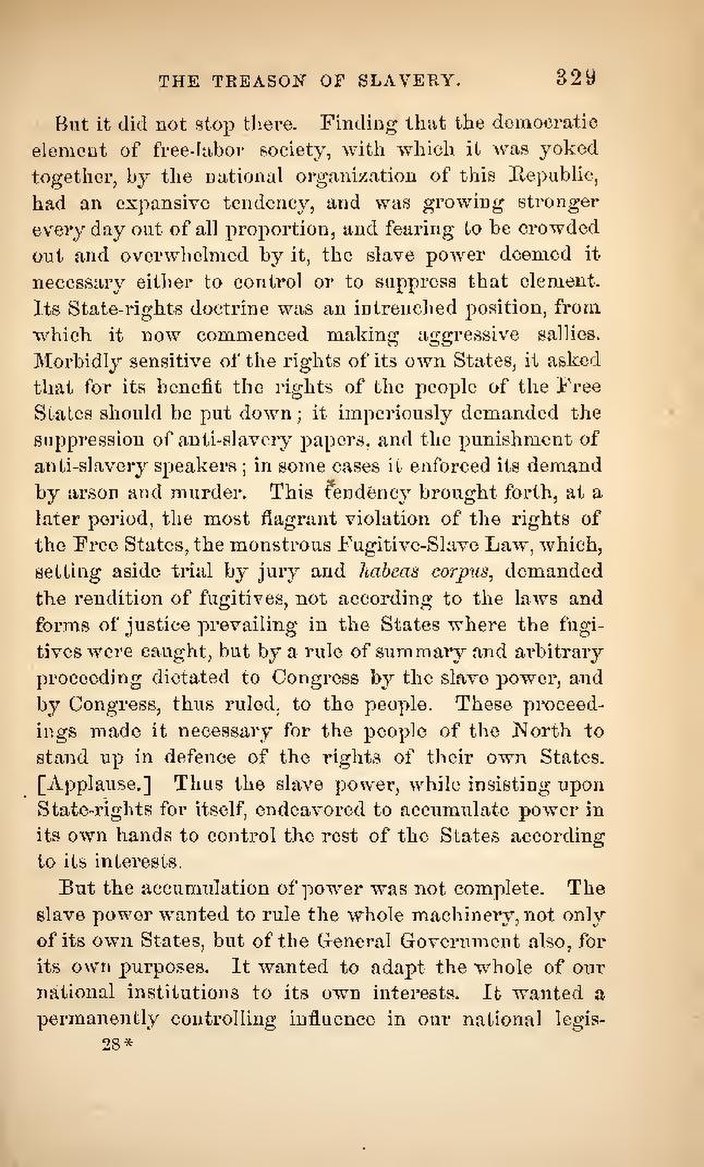But it did not stop there. Finding that the democratic element of free-labor society, with which it was yoked together, by the national organization of this Republic, had an expansive tendency, and was growing stronger every day out of all proportion, and fearing to be crowded out and overwhelmed by it, the slave power deemed it necessary either to control or to suppress that element. Its State-rights doctrine was an intrenched position, from which it now commenced making aggressive sallies. Morbidly sensitive of the rights of its own States, it asked that for its benefit the rights of the people of the Free States should be put down; it imperiously demanded the suppression of anti-slavery papers, and the punishment of anti-slavery speakers; in some cases it enforced its demand by arson and murder, This tendency brought forth, at a later period, the most flagrant violation of the rights of the Free States, the monstrous Fugitive-Slave Law, which, setting aside trial by jury and habeas corpus, demanded the rendition of fugitives, not according to the laws and forms of justice prevailing in the States where the fugitives were caught, but by a rule of summary and arbitrary proceeding dictated to Congress by the slave power, and by Congress, thus ruled, to the people. These proceedings made it necessary for the people of the North to stand up in defence of the rights of their own States. [Applause.] Thus the slave power, while insisting upon State-rights for itself, endeavored to accumulate power in its own hands to control the rest of the States according to its interests.
But the accumulation of power was not complete. The slave power wanted to rule the whole machinery, not only of its own States, but of the General Government also, for its own purposes. It wanted to adapt the whole of our national institutions to its own interests. It wanted a permanently controlling influence in our national legis-
